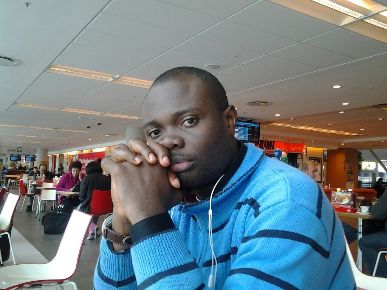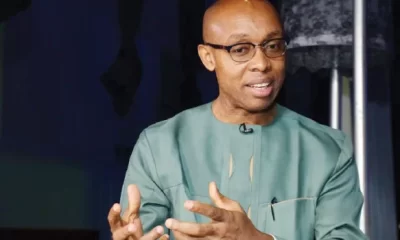National Issues
Why Biafra Is a Waste of Time -By Mbasekei Martin Obono


Mbasekei Martin Obono
In recent times, the agitation for the resuscitation of Biafra has gained momentum, mostly among an excluded under-class in South-East Nigeria. Like every problem, this agitation is a threat to our collective unity. However, it also provides added impetus to the advocacy to restructure our federalism and enhance leadership and governance to care for the citizens and protect lives.
I have listened to Nnamdi Kanu, the self-proclaimed leader of the Indigenous People of Biafra (IPOB). Stripped of his tendency for casual hate and intolerance, all Kanu seems to want is a country that cares for its citizens. The absence of such a country, it seems, is the driver of his agitation for another country that he thinks can care – Biafra. This, of course, is open to dispute. To do so effectively, his argument needs close examination on its terms.
First, the right to self-determination is a human right and there are international instruments that regulate and interpret it. For us to appreciate the international instruments surrounding self-determination, we need to understand the reasons for their existence and juxtapose that with where we are. Laws are made on the basis of trends and needs.
In 1948, the United Nations adopted The Universal Declaration of Human Rights (UDHR) as a “common standard” for humanity. In 1959, Nigeria held its first election and also incorporated most of the UDHR into our constitution. In 1960, we became an independent country. In 1963, the Organisation of African Unity (OAU) was established and in 1966 the UDHR was complemented by the International Covenant on Civil and Political Rights (ICCPR) and the International Covenant on Economic, Social and Cultural Rights (ICESCR). In 2007, the United Nations General Assembly adopted the United Nations Declaration on the Rights of Indigenous Peoples (UNDRIP).
The UDHR was adopted against the background of the atrocities of the Second World War. It’s explicit mission was to preclude similar atrocity ever again. The OAU was formed mainly for the liberation of Africa from colonialism. Having met its objective of liberating the continent from foreign domination, it metamorphosed into the African Union (AU) in 2002, to advance our development in peace and security.
Most African nations gained independence from colonisation in the 1960s, the decade that saw the adoption of the ICCPR and the ICESCR, which both elevated self-determination to a treaty right in international law, recognised in Article 1 (common) of both Covenants. The Opinion of International Court of Justice in the 1975 Western Sahara case between Spain, Morocco and Mauritania clearly defines self-determination in terms of the need to pay attention to “freely expressed will of Peoples.”
What does “freely expressed will of Peoples” even mean, within the context of the Biafra agitations?
Perhaps, the question of secession can be answered under the UNDRIP. In its preamble, UNDRIP provides that the rights of indigenous “peoples political, economic and social structures and from their cultures, spiritual traditions, histories and philosophies, especially their rights to their lands, territories and resources must be respected.”
It is believed that the UNDRIP came into existence in 2007 because nations of the world wanted to put an end to the question of secession. That is why article 46 of the UNDRIP categorically puts it that, “nothing in this Declaration may be interpreted as implying for any State, people, group or person…or construed as authorising or encouraging any action which would dismember or impair, totally or in part, the territorial integrity or political unity of sovereign and independent State.”
Nigeria is unquestionably a sovereign state, which cannot be said of the thing called Biafra. On the contrary, the territory claimed by IPOB and the Movement for the Sovereign State of Biafra (MASSOB) is already part of the sovereign state of Nigeria. The last time I checked, MASSOB was recognised by the United Nations as an Indigenous group. If IPOB is an offshoot of MASSOB, would it suffice to believe that the group is also relying on its parent organisation’s recognition at the United Nations to seek secession? If so, the UNDRIP has put paid to their question on secession. Biafra cannot rely on any international human rights instrument (whether it is soft law or hard law) to secede. The law has moved on from 1966 to 2007 and there neither IPOB nor MASSOB may have the standing under the laws as they now are to claim a state of Biafra.
Mbasekei Martin Obono tweets @martobono



















